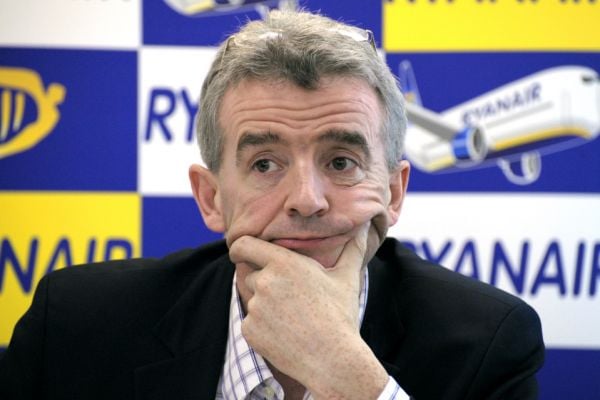Boeing Co has taken a $6.5 billion charge on its new 777X jet and recorded a record annual loss, as the cost of tighter regulation in the wake of two 737 MAX crashes caught up with its next flagship development.
The huge charge, on top of an industry-wide recession resulting from the coronavirus pandemic, caps a tumultuous year for the world's largest aerospace company which saw it slash production, shed thousands of jobs and battle to restore its reputation.
Boeing said that it now expects the 777X, which is a larger version of the 777, to enter service by late 2023, which is a year later than its previous estimate, with a longer and costlier certification process after scrutiny over the 737 MAX.
Boeing is making "prudent design modifications" to the 777X, including hardware changes to control electronics, in response to regulator expectations, Boeing CEO Dave Calhoun told analysts.
"2020 was a historically challenging year for our world," he said.
Calhoun said that Boeing has sufficient liquidity to manage the downturn but sounded a note of caution on the smoothness of vaccine distribution and an early summer rebound in air travel.
The historic slump in air travel and expanded inspections over production defects has halted deliveries of some 80 787s to airlines so far, cutting off a key source of cash and raising the prospect of a reach-forward loss as Boeing works to clear an inventory of approximately 450 737 MAX jets.
Boeing said that it expects to resume handing over 787s to customers later this quarter, with none in January and few in February, though analysts say that deliveries are not expected to recover to 2019 levels until at least 2024.
The company reaffirmed plans to hit a sharply-reduced production rate of five 787s per month in March, when it will consolidate production at its South Carolina factory, a decision that was first reported by Reuters.
Boeing, which has delivered some 40 737 MAXs from its stored inventory, is also sticking with plans to reach a production rate of 31 737 jets per month by the beginning of 2022, though at least one analyst expects that to slip to early 2023.
The European Union Aviation Safety Agency (EASA) lifted its own 22-month 737 MAX flight ban on this, as did Britain's Civil Aviation Authority (CAA), following a move by US counterparts in November, and Brazil and Canada afterward.
China, which was first to ban the plane after the second crash in March of 2019 and which represents a quarter of MAX sales, has not said when it will act.
Even so, Boeing said this week that it expects to win remaining 737 MAX regulatory approvals in the first half of 2021.
Demand from China has also been curbed by years of trade tensions between Washington and Beijing, though industry sources have expressed cautious hope for a revived deal now that US President Joe Biden has taken office, following a pattern of government-brokered Chinese jet orders coinciding with transfers of power or diplomatic resets.
Calhoun told CNBC earlier that he is "optimistic" about new big plane orders from China, although industry sources have cautioned that demand remains thin despite Chinese traffic rebounding more quickly than elsewhere.
Boeing unveiled $8.3 billion in operating charges this week, including a $468 million charge for abnormal 737 production costs, $275 million over KC-46 aerial refuelling tanker production issues, and $744 million linked to its 737 MAX settlement with the US Department of Justice over a fraud conspiracy charge.
Net Loss, Full-Year Loss And Revenue
The company's net loss rose to $8.44 billion in the fourth quarter that ended on December 31, 2020, from $1.01 billion a year earlier, taking its full-year loss to a record $11.94 billion.
Revenue fell by 15% to $15.30 billion in the quarter.
News by Reuters, edited by Hospitality Ireland. Click subscribe to sign up for the Hospitality Ireland print edition.









